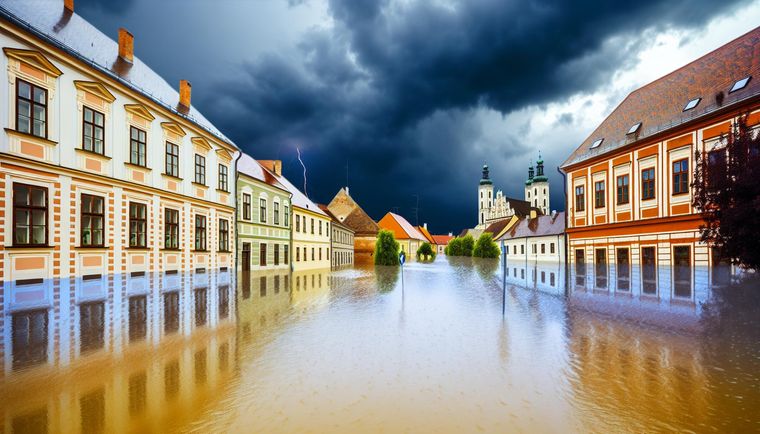Central Europe Faces Devastating Floods Amid Climate Crisis

Picturesque towns across central Europe are engulfed by polluted floodwaters after heavy weekend rains transformed peaceful streams into ferocious rivers, wreaking havoc on local infrastructure. The floods have claimed at least 15 lives and led to widespread destruction of buildings from Austria to Romania. This catastrophic event is part of a worrying pattern as similar devastating floods occurred elsewhere in the world just last week, such as entire villages being submerged in Myanmar and nearly 300 prisoners escaping from a collapsed jail due to floods affecting over 1 million people in Nigeria.
Climate scientists express concern about the damage but are not surprised by the intensity of these floods. Joyce Kimutai from Imperial College London's Grantham Institute explained that the recent catastrophic rainfall in central Europe aligns with predictions associated with climate change. She highlighted how the death toll and property losses across both Africa and Europe illustrate global preparedness deficiencies for such extreme weather events.
When attributing extreme rains to human influence, scientists proceed with caution due to the myriad factors impacting the water cycle. However, it is well-established that warmer air can retain more moisture, and the likelihood of intense downpours is influenced by available water vapor. Sonia Seneviratne, a climate scientist at ETH Zürich, stated that preliminary analyses of the recent floods in central Europe indicated that much of the water vapor originated from an increasingly warmer Black Sea and Mediterranean Sea. This increase in temperature, spurred by human-induced climate change, results in greater evaporation into the atmosphere.
On average, the severity of heavy precipitation events rises by 7% for each additional degree of global warming. With today's 1.2°C rise in global temperatures, heavy rainfall events are approximately 8% more intense than previously experienced. Weather station data shows that the frequency and intensity of September rainfalls have escalated in Germany, Poland, Austria, the Czech Republic, Hungary, and Slovakia since 1950.
In Poland, floods have caused a bridge collapse and swept houses away, according to local media reports. In the Czech Republic, helicopters have been deployed to rescue citizens stranded by rising waters, while in Austria, one firefighter’s death during rescue efforts has been reported.
Vienna, which has hosted Europe's largest weather and climate conference since 2005, experienced significant flooding, with motorway closures and interruptions to metro services due to the deluge. Climate scientist Erich Fischer from ETH Zürich noted the irony of scientists discussing the science behind climate change-induced rainfall intensity over lunch along the New Danube, only to witness those very banks flooding.
The impact of flooding often depends on how prepared communities are for heavy rainfall. Scientists advocate for governmental investments in adaptations to extreme weather, including early warning systems, resilient infrastructure, and support for victims, while emphasizing the urgent need to reduce reliance on fossil fuels.
Friederike Otto, another climate scientist at the Grantham Institute, asserts that even developed nations are not immune to the effects of climate change. She warns that as long as fossil fuels remain central to energy production, severe rainfall and other climatic extremes will continue to intensify, rendering our planet a more dangerous and costly place to inhabit.
Related Sources:
